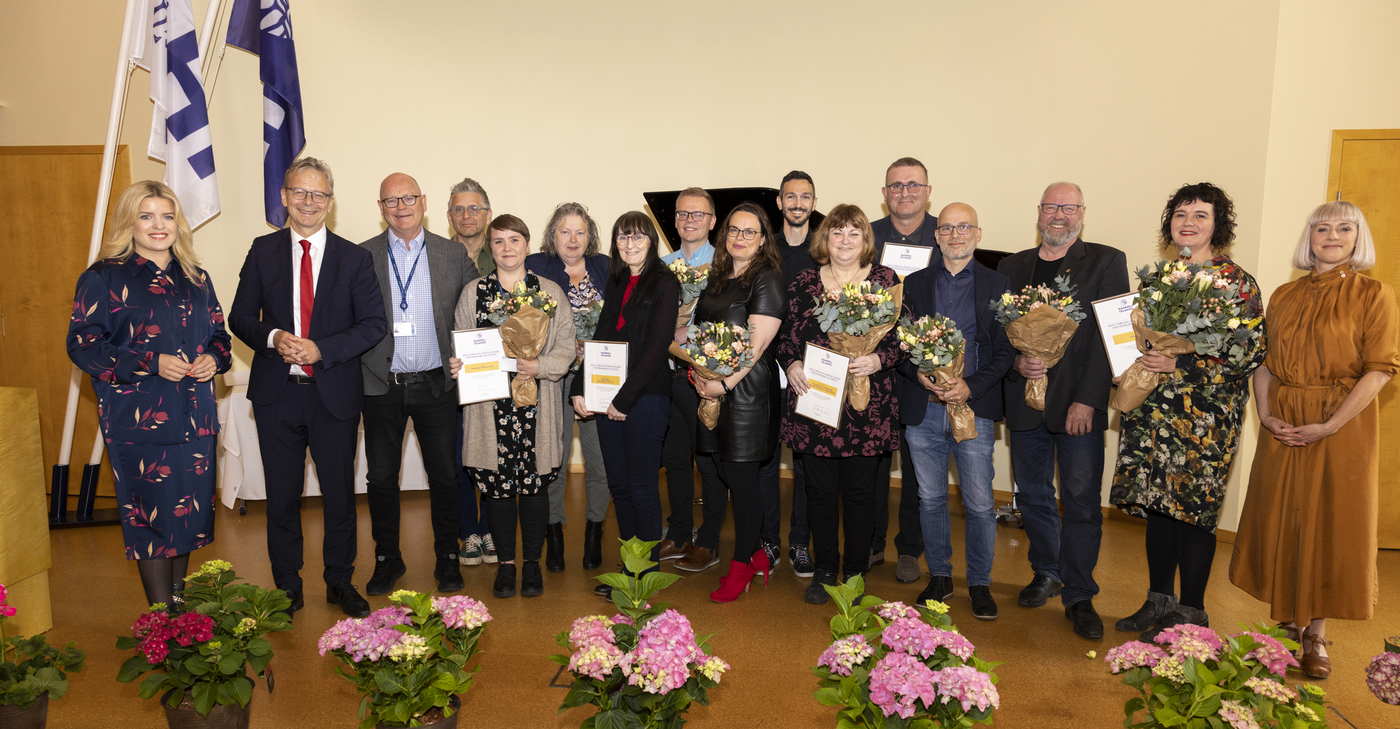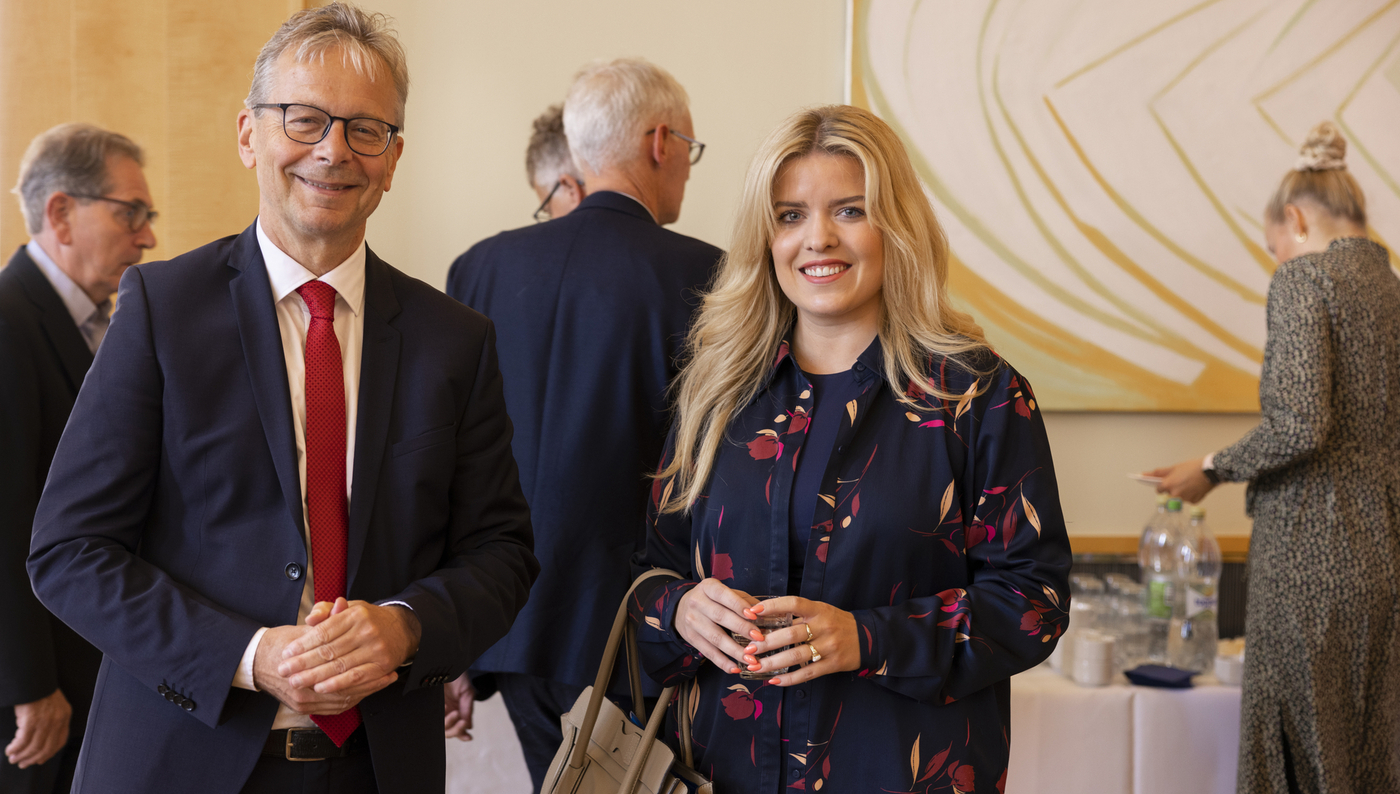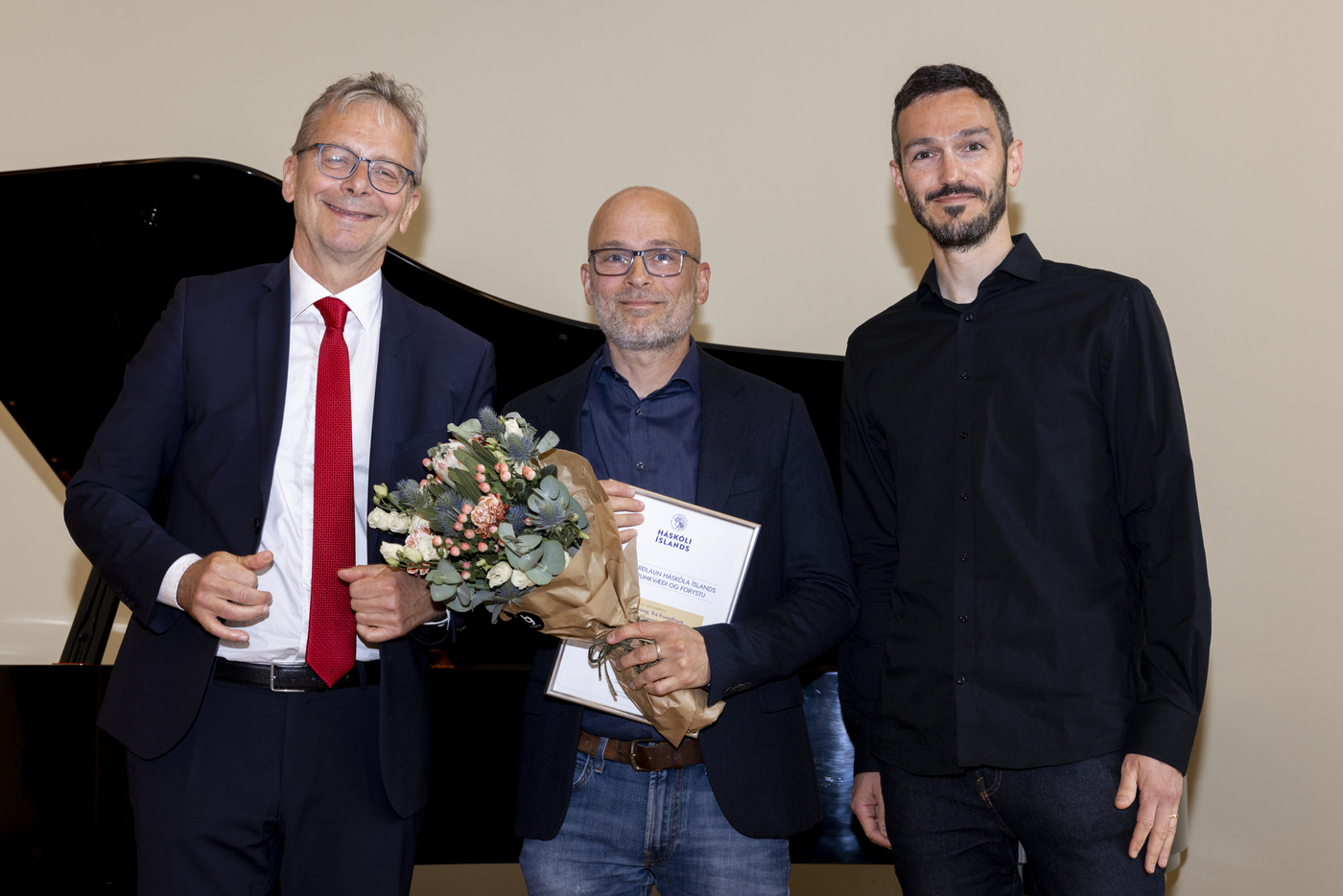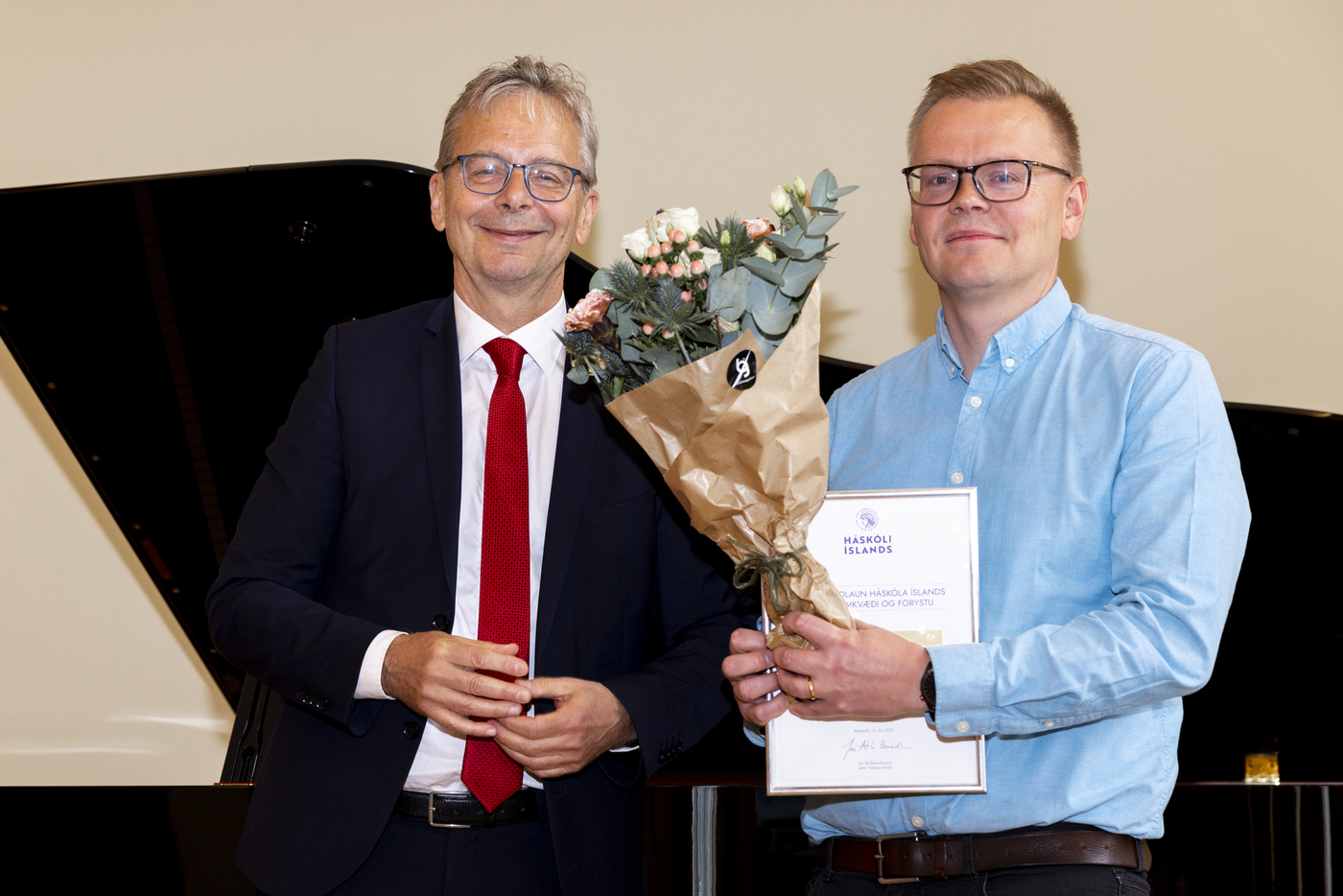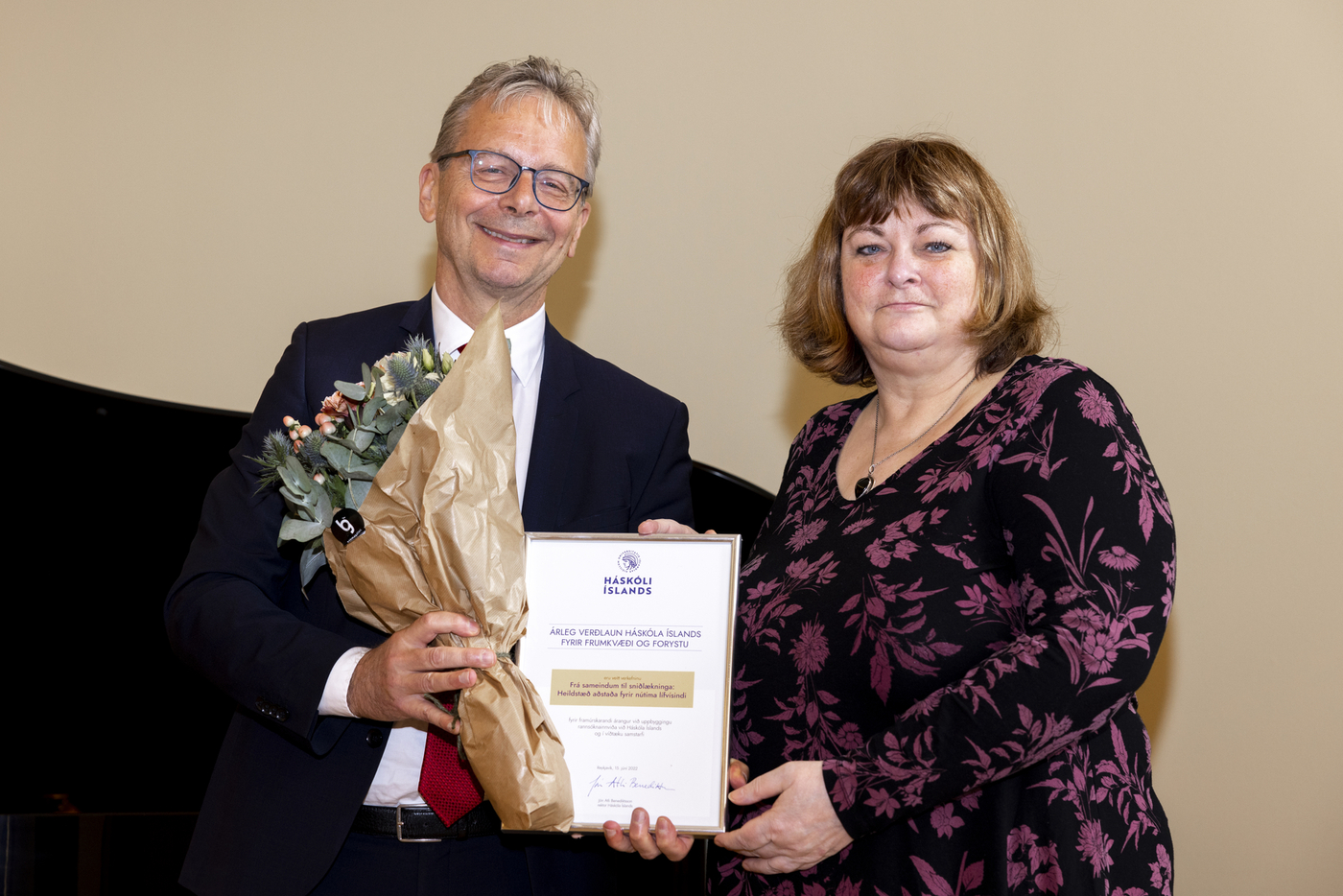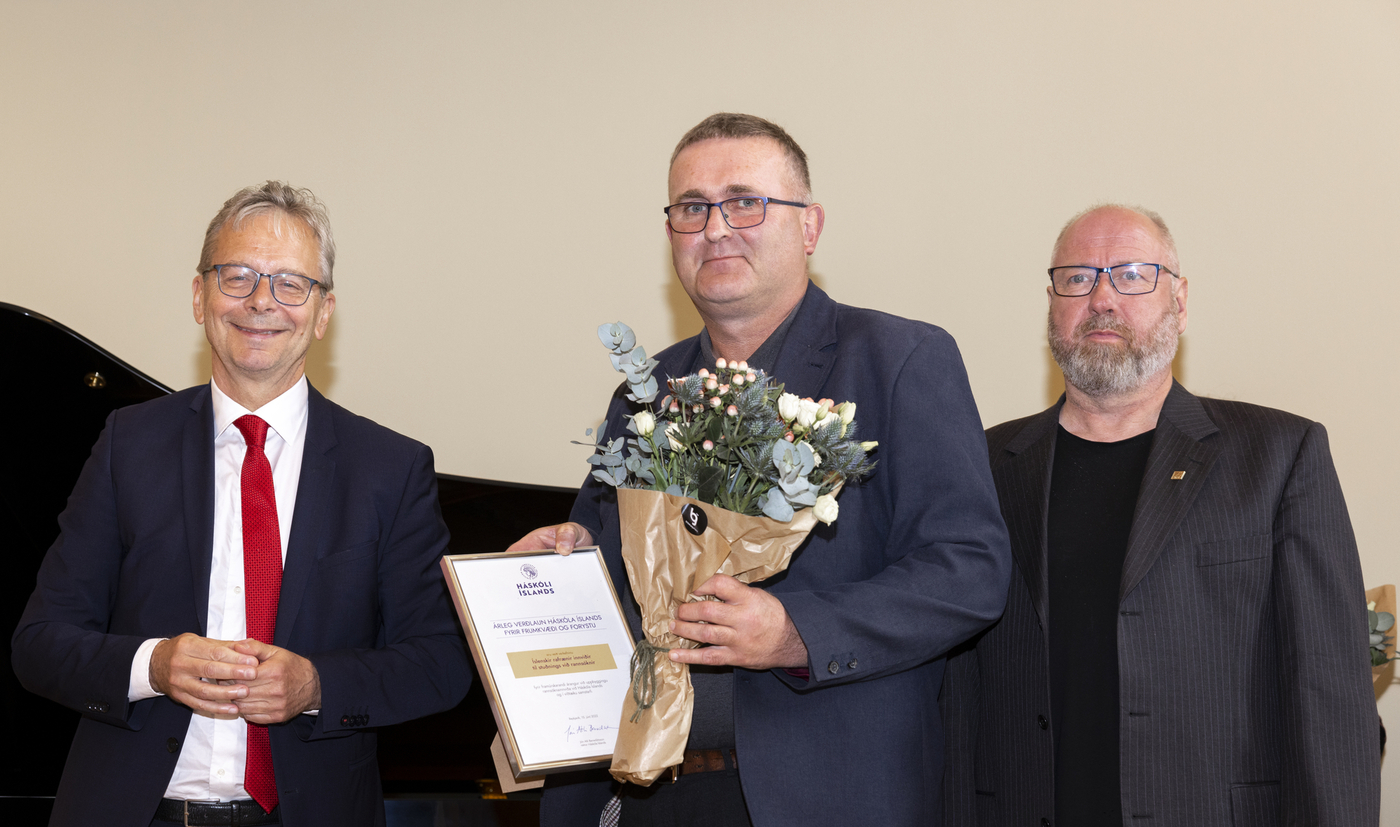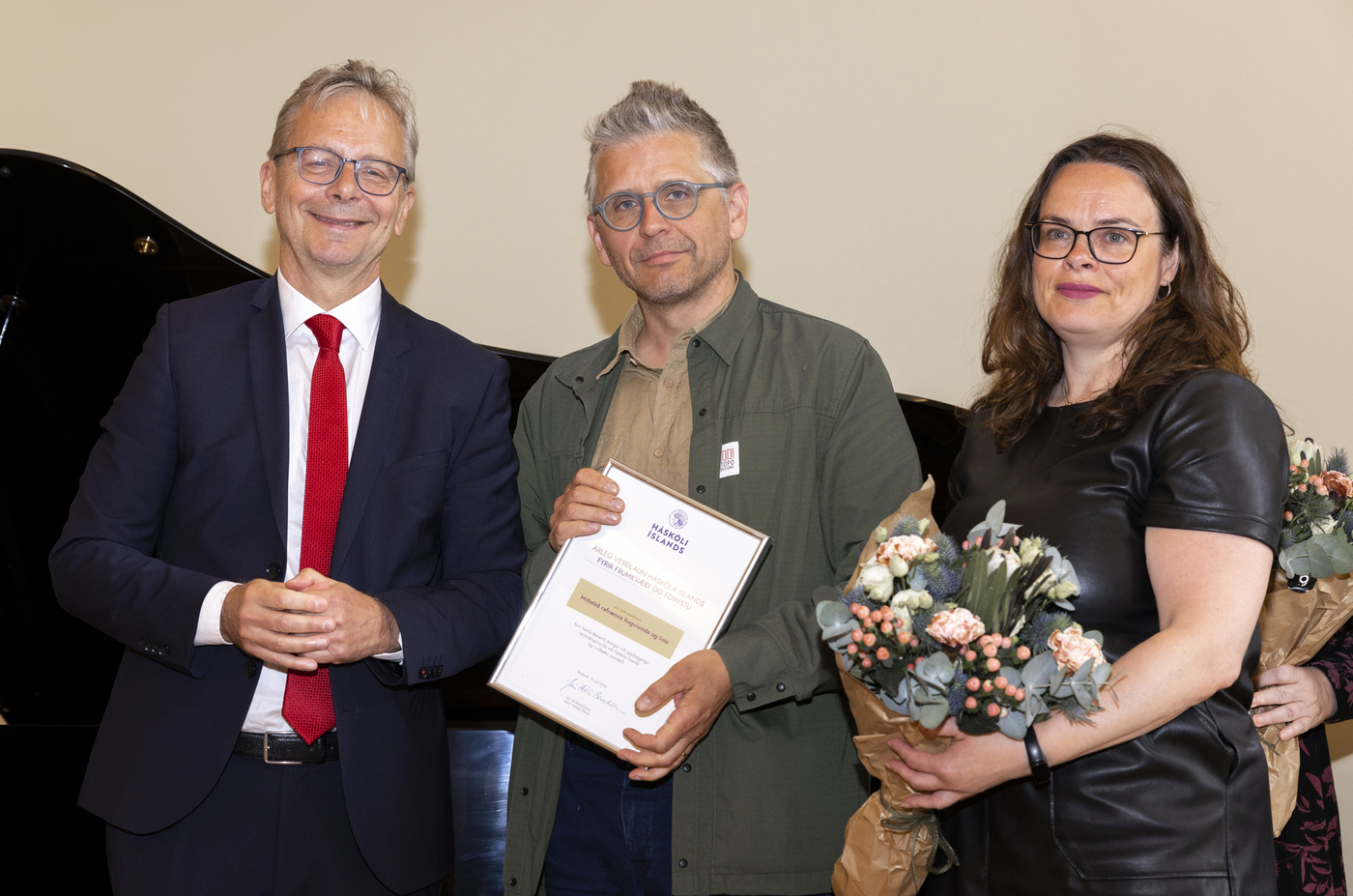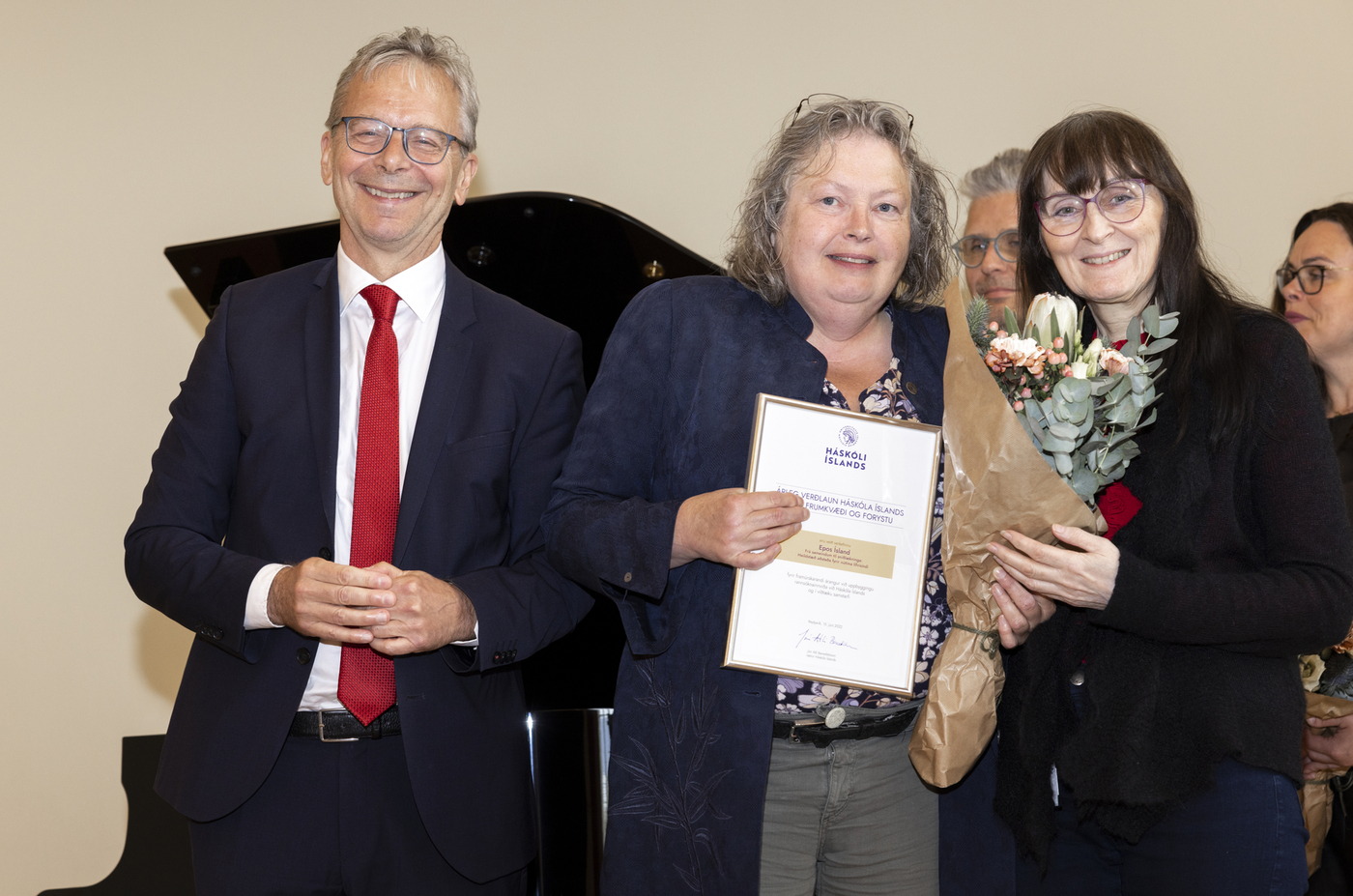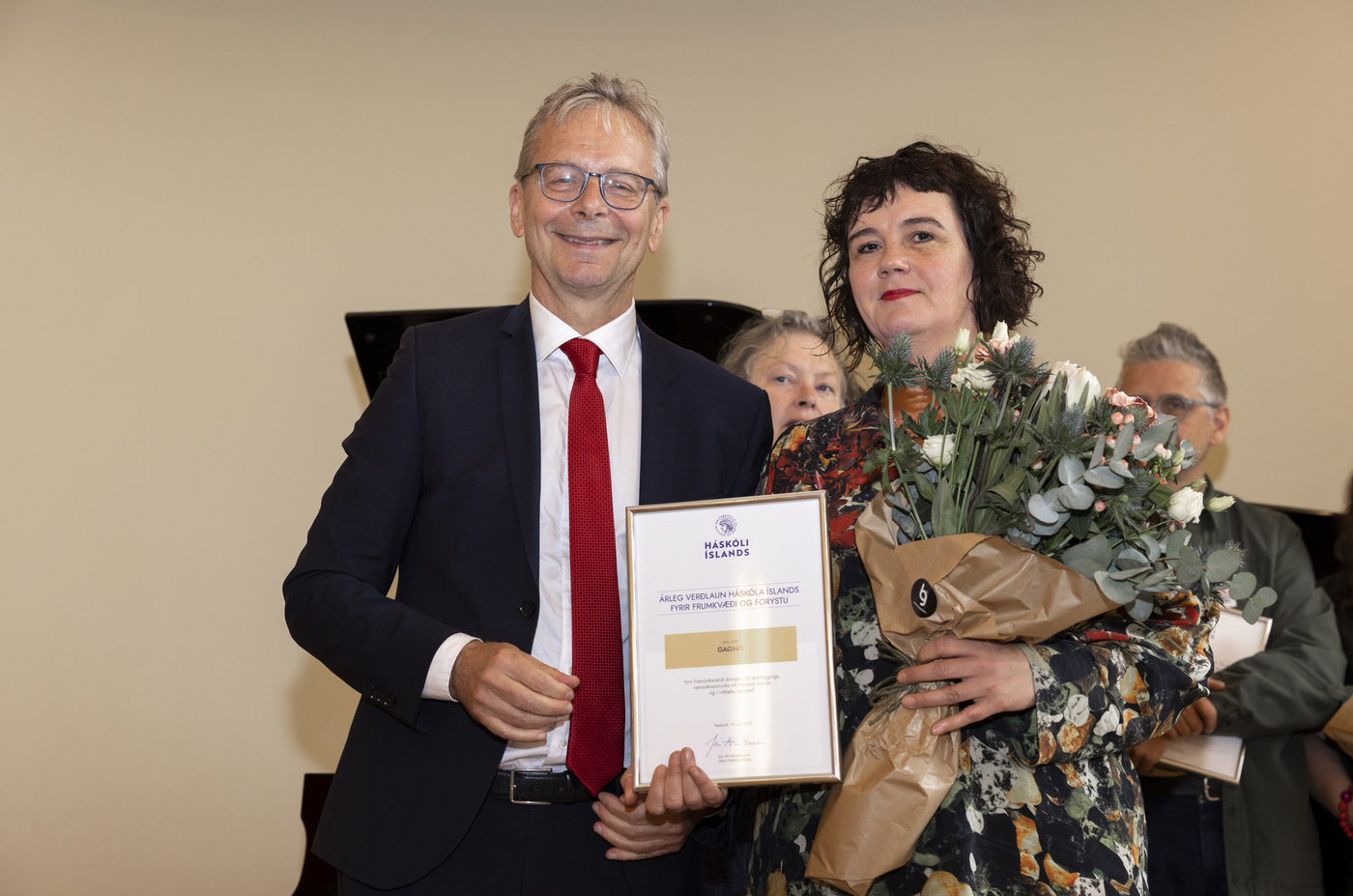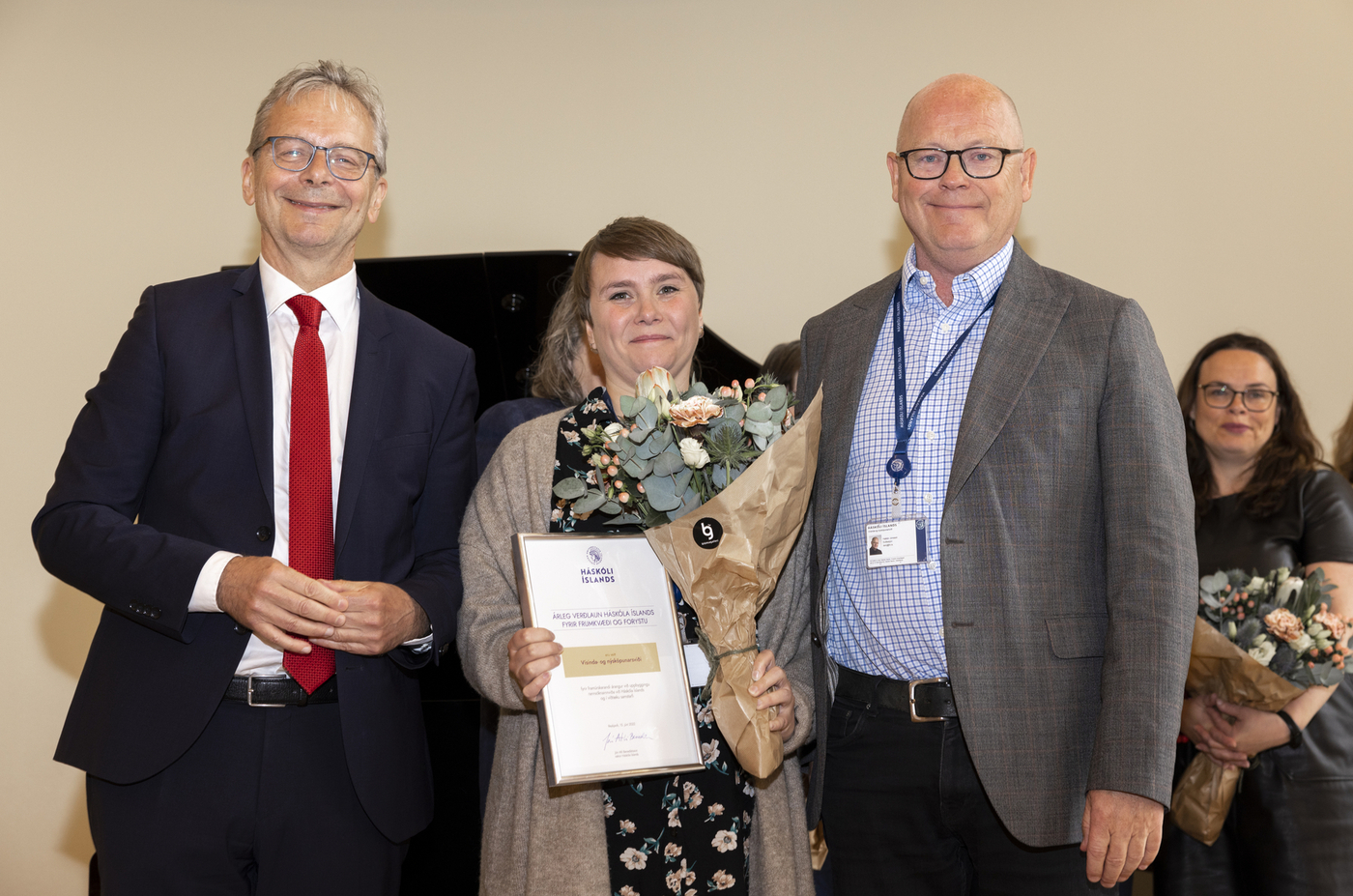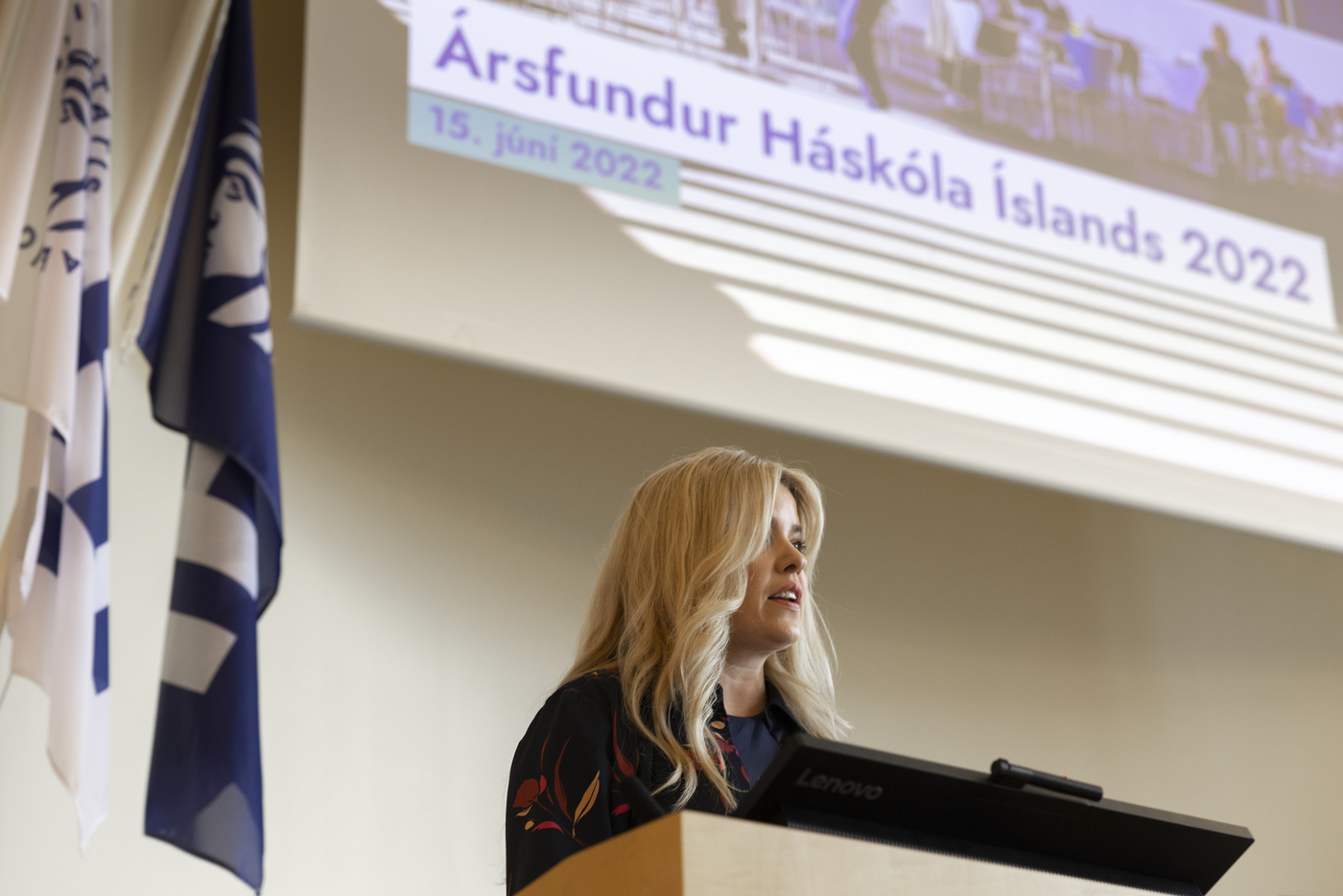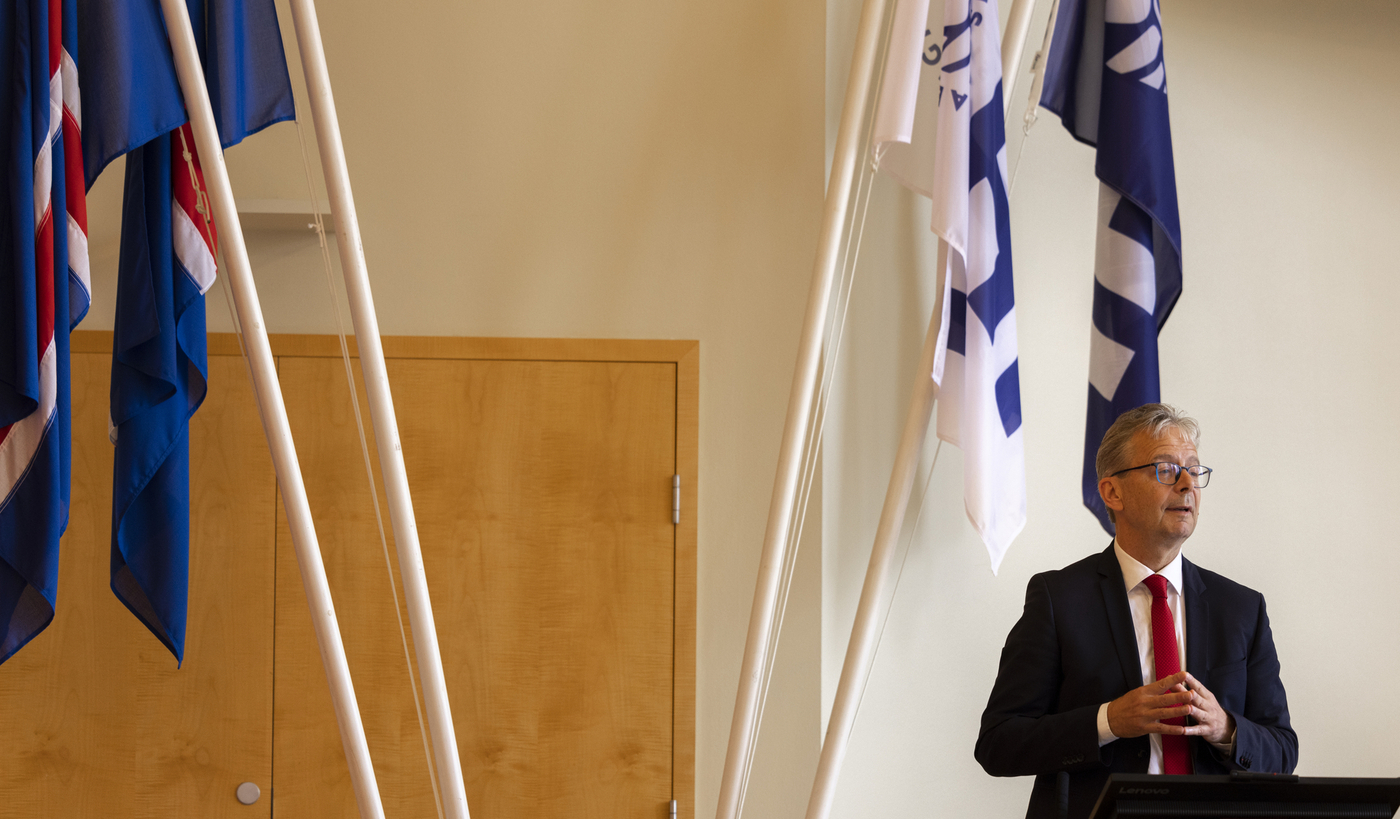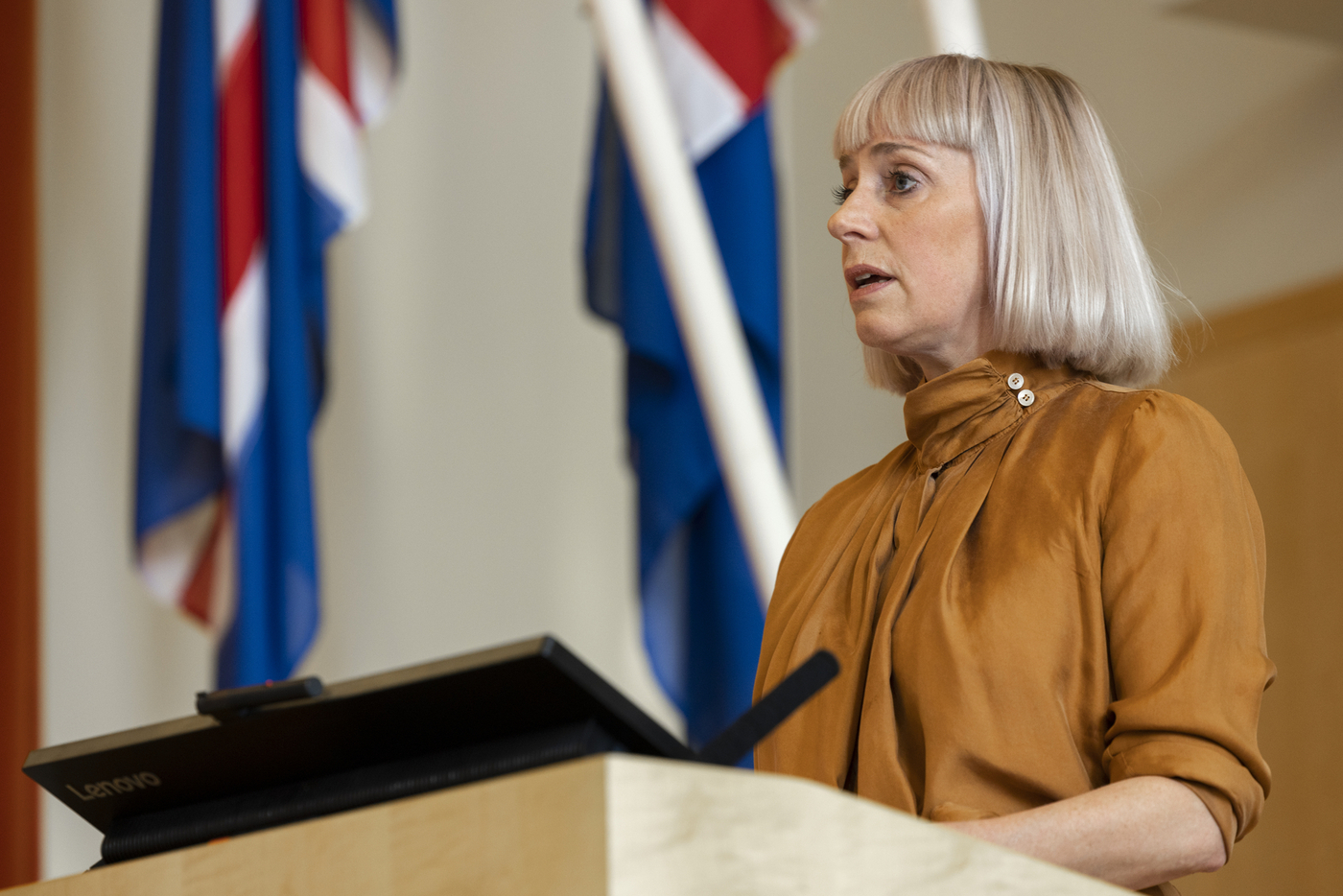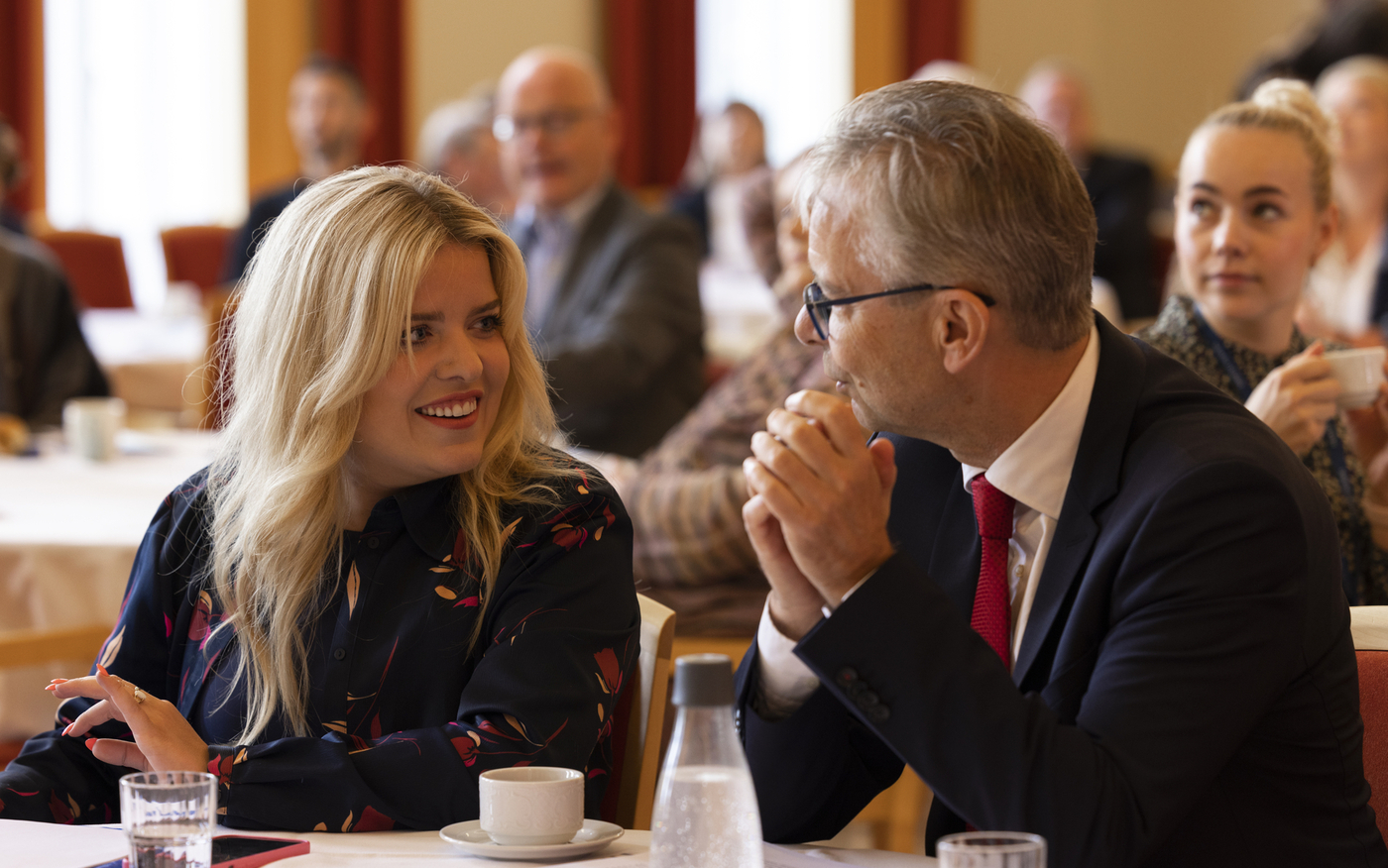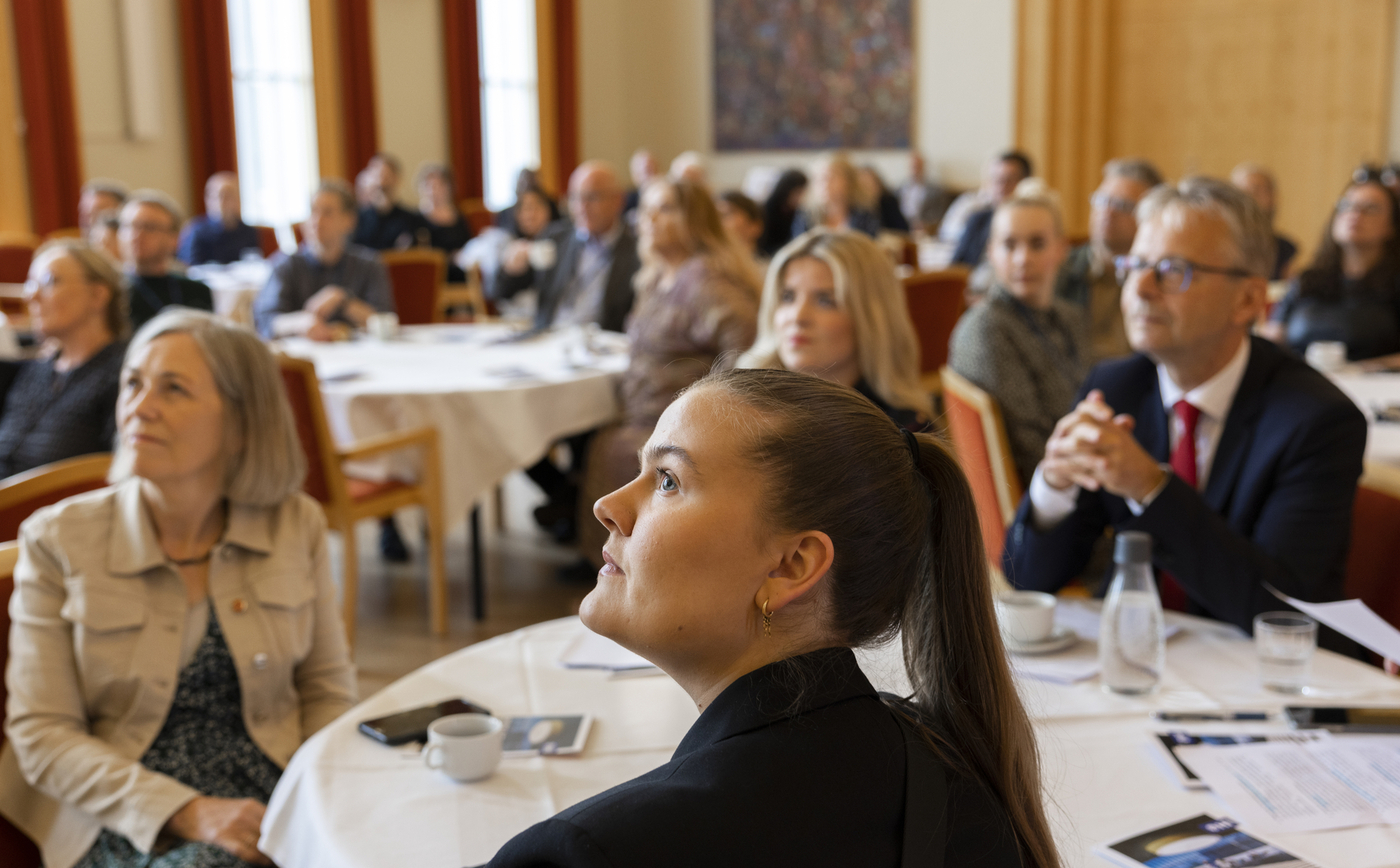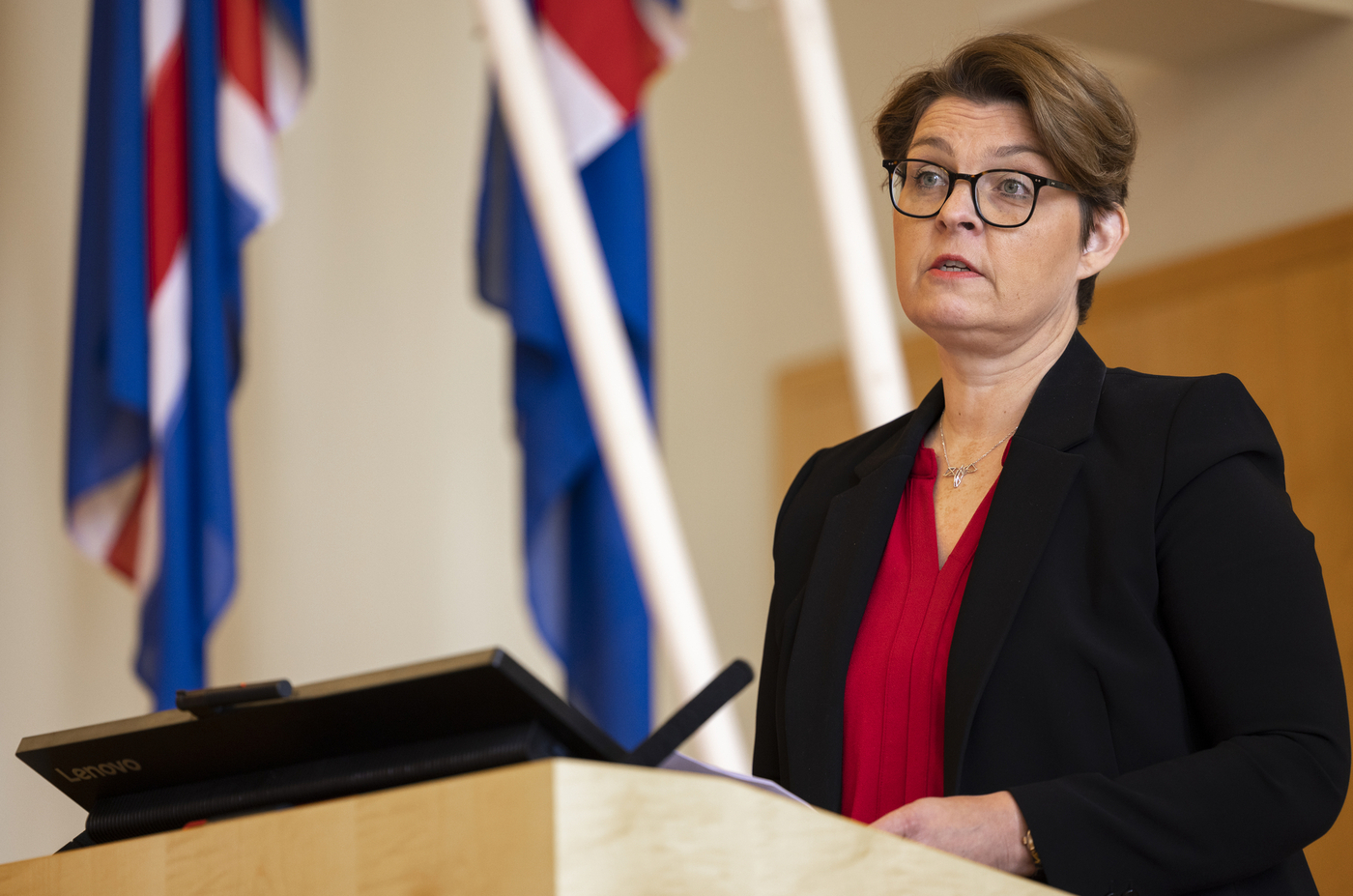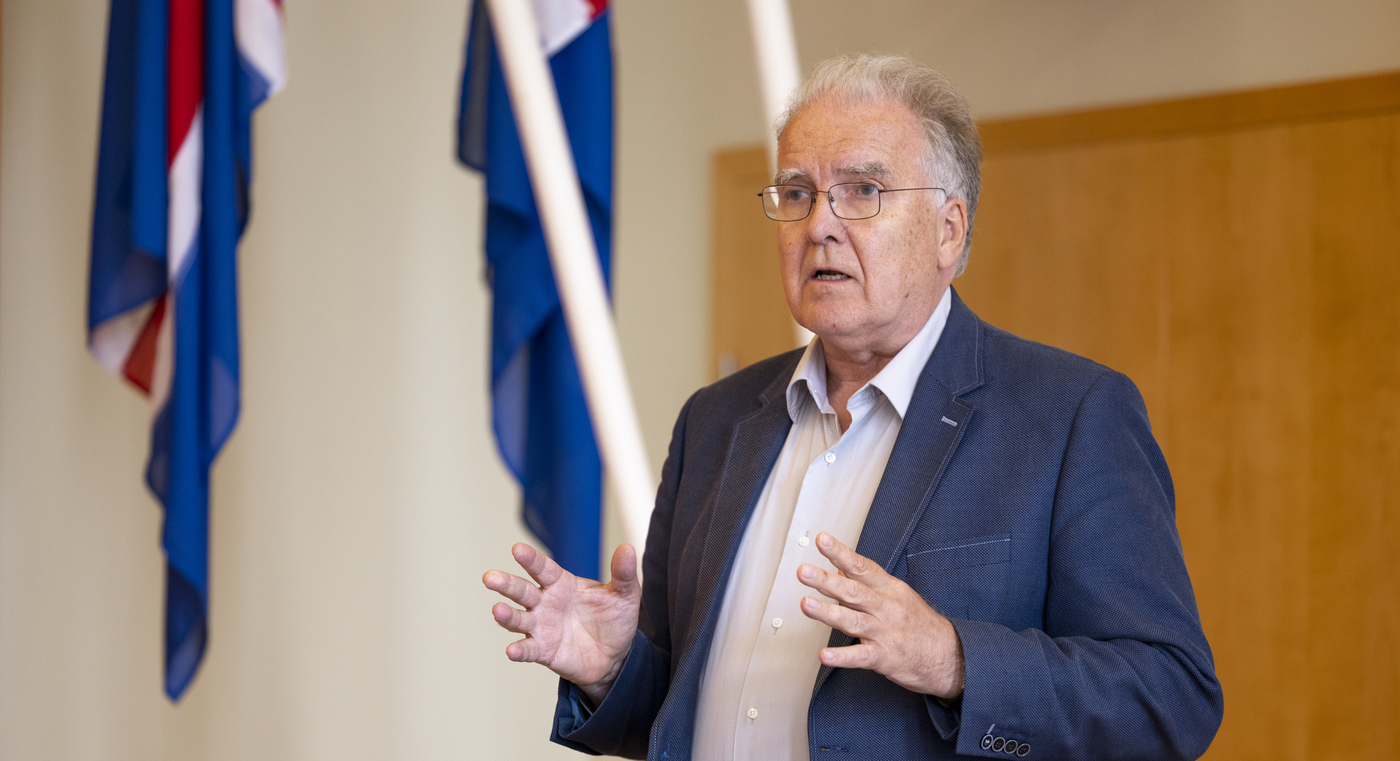A group of scientists and other staff, involved in extensive infrastructure projects at the University of Iceland today received the university‘s Annual General Meeting awards at the University Aula. The projects concern scientific operations at all the university‘s schools. Áslaug Arna Sigurbjörnssdóttir, Minister of Higher Education, Science and Innovation addressed the meeting.
The Annual General Meeting awards were presented now for the fourth time. They are awarded to groups or teams that have shown exemplary initiative and leadership in contributing to excellent work within the university. The recipients are chosen by Rector and the Deans of the five university schools.
“The awards underline that every day within the university is a day of excellent and important work – work that deserves recognition, be it in the field of education and teaching; research and innovation; equality; social participation or student initiative,” says Jón Atli Benediktsson, rector of the University of Iceland, when the awards were presented at the Annual General Meeting.
Eight groups involved in infrastructure projects were awarded today. The projects are:
Chemical analysis, from elements to organic molecules
The project aims at developing and improving access to infrastructure in chemical analysis, useful for research, development and innovation in medicine, pharmaceutical science, biology, biochemistry, molecular chemistry, biotechnology, nutritional and food science, chemistry, chemical engineering, and health engineering.
Centre for materials science and materials engineering
At the centre equipment to construct materials, analyse them and test will be developed. This will include analytical equipment; clean rooms; equipment for coating; equipment for minute construction; 3D metal printers, and chemical electrical equipment. The centre will be a joint venture for research institutions and universities, and also accessible to companies and others that can utilise the equipment.
From molecules to personalised medicine: Comprehensive facilities for modern life sciences
This project aims to develop outstanding research facilities for life sciences in Iceland that can be useful in analysing DNA and RNA molecules, genetic changes to cells and animals and to increase the connection between research in the life sciences and clinical research.
Icelandic electronic infrastructure to support research
This project aims to construct a comprehensive centre in information technology, custom designed for Icelandic science, not least concerning the storing and dissemination of data. Furthermore, the goal is to drastically increase calculating power for researchers using supercomputers.
Centre for digital humanities and arts
The Centre for digital humanities and arts is a venue for developing, storing and collaboration on digital databases in the humanities and the arts. The databases will be language based and also contain data of other formats, such as images, videos, 3D models, audio, and digital visual art.
Epos Iceland
The project aims to develop and manage infrastructure for earth scientists The project is international and involves digital services and access to earth science data.
GAGNÍS
The data service GAGNÍS is an accredited service provider for CESSDA ERIC (the European association on data protection in social sciences) in Iceland. The service is located within the Social Science institute at the University of Iceland and provides access to a broad range of social science data, for example surveys, tests, public statistics, interviews, and focus groups.
Division of Science and Innovation
The Division of Science and Innovation is awarded for encouraging widespread collaboration in- and outside the university on the infrastructure projects in connection with the preparation for applications and support to the application process in connection with the government’s guidelines (Vegvísir) and its aftermath.
“Comprehensive research infrastructure is a prerequisite for outstanding science and innovation and provide the bases for the advancement of research and science. The University of Iceland’s strategy for 2026, HÍ26, focuses on developing strong research infrastructure, supporting international collaboration in research and innovation," rector commented at the presentation of the awards.




